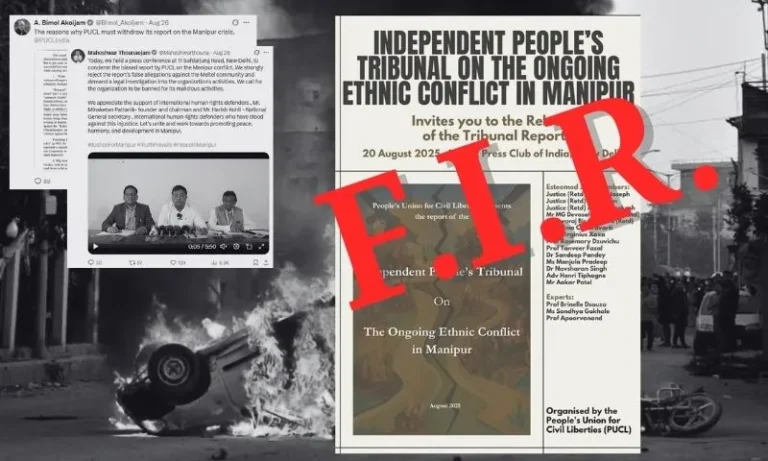Manipur CM N. Biren Singh Condemns Rahul Gandhi Over Alleged Assault on Nagaland MP
Summary of the News
Manipur Chief Minister N. Biren Singh strongly criticized Congress leader Rahul Gandhi following reports of an alleged assault on a Nagaland MP during a parliamentary session. The CM condemned the incident, emphasizing that such behavior undermines the sanctity of democratic institutions. This condemnation sheds light on the need for maintaining decorum and respect within India’s legislative houses.
A Closer Look: N. Biren Singh’s Remarks on the Alleged Incident
The Allegations: What Happened?
Reports surfaced suggesting that a Nagaland MP was allegedly assaulted during a heated parliamentary debate involving Rahul Gandhi. While the full details of the altercation remain unclear, it has sparked widespread discussion and criticism. The incident has drawn attention to the conduct of lawmakers and the overall decorum in Parliament.
Manipur CM’s Condemnation
N. Biren Singh did not mince words. His remarks reflect the frustration many feel about the growing instances of confrontations in Indian politics. For him, this was more than just a personal criticism—it was a call to preserve the integrity of India’s democratic framework.
In his statement, Singh highlighted the need for leaders to lead by example, urging that physical altercations have no place in a parliamentary setting.
The Bigger Picture: Why This Matters
Parliamentary Decorum Under Scrutiny
India’s Parliament is often described as the temple of democracy, but recent incidents have raised questions about whether it’s living up to that ideal. From shouting matches to walkouts, the rising tension among lawmakers seems to have culminated in this alleged physical altercation.
This incident isn’t just about one MP or one leader—it’s a reflection of deeper political divides and the erosion of mutual respect among representatives.
Impact on Public Perception
When lawmakers engage in such behavior, it tarnishes the image of Indian democracy. Citizens expect their leaders to resolve disputes through dialogue, not physical confrontations. Incidents like these risk alienating the public and breeding cynicism toward the political process.
Rahul Gandhi’s Role and Reactions
The Allegations Against Rahul Gandhi
While the details remain unclear, the reports place Rahul Gandhi at the center of the controversy. Allegations suggest that his involvement escalated tensions during the parliamentary session. This has further polarized opinions, with critics calling for accountability and his supporters claiming political targeting.
The Congress Party’s Stance
The Congress party has predictably defended Gandhi, dismissing the allegations as politically motivated. They argue that such incidents are being exaggerated to distract from pressing national issues. However, the lack of clarity has only fueled speculation.
N. Biren Singh’s Leadership and Strong Stance
Why Singh’s Statement Matters
As the Chief Minister of Manipur, Singh’s condemnation carries weight, especially given the close ties between the northeastern states and Nagaland. His stance is seen as an effort to uphold regional solidarity and demand accountability from national leaders.
A Call for Unity and Decorum
Singh’s remarks also highlight a broader concern: the need for unity among India’s diverse regions and political factions. For northeastern states like Manipur, maintaining respectful dialogue is critical for fostering trust and cooperation.
Lessons for Indian Politics
The Importance of Accountability
Incidents like these underscore the need for mechanisms to hold lawmakers accountable. Whether it’s through ethical committees or stricter parliamentary rules, steps must be taken to ensure that decorum is maintained.
Restoring Faith in Democracy
For democracy to thrive, citizens must trust their leaders. Restoring this trust requires a collective effort to prioritize respectful dialogue, transparency, and a commitment to serving the public good.
What This Means for the Northeast
Representation Matters
The alleged assault on a Nagaland MP has struck a chord in the northeastern states. It’s a reminder of the challenges that leaders from smaller regions face in being heard on the national stage.
A Push for Stronger Regional Voices
This incident could serve as a catalyst for northeastern leaders to demand greater respect and representation in national politics. As Singh’s condemnation shows, the region’s leaders are no longer willing to stay silent in the face of disrespect or marginalization.
What’s Next? The Road Ahead
The alleged assault on the Nagaland MP is more than just a one-off incident—it’s a wake-up call for India’s political system. From improving parliamentary conduct to addressing regional concerns, there’s much work to be done. Leaders like N. Biren Singh are setting an example by speaking out, but lasting change will require a collective effort.
FAQs
- What exactly happened in Parliament involving Rahul Gandhi?
Reports suggest that a Nagaland MP was allegedly assaulted during a parliamentary session. Rahul Gandhi has been accused of being involved, though details remain unclear. - Why did N. Biren Singh condemn the incident?
The Manipur CM criticized the incident as a breach of parliamentary decorum and called for accountability to preserve the integrity of India’s democratic institutions. - What is the Congress party’s response to these allegations?
The Congress party has dismissed the allegations, claiming they are politically motivated and intended to distract from larger issues. - How does this incident impact the Northeast?
The alleged assault has raised concerns about the treatment of northeastern representatives in national politics, highlighting the need for stronger regional voices. - What steps can be taken to prevent such incidents in the future?
Strengthening parliamentary rules, promoting dialogue, and holding lawmakers accountable are essential for maintaining decorum in legislative houses.



